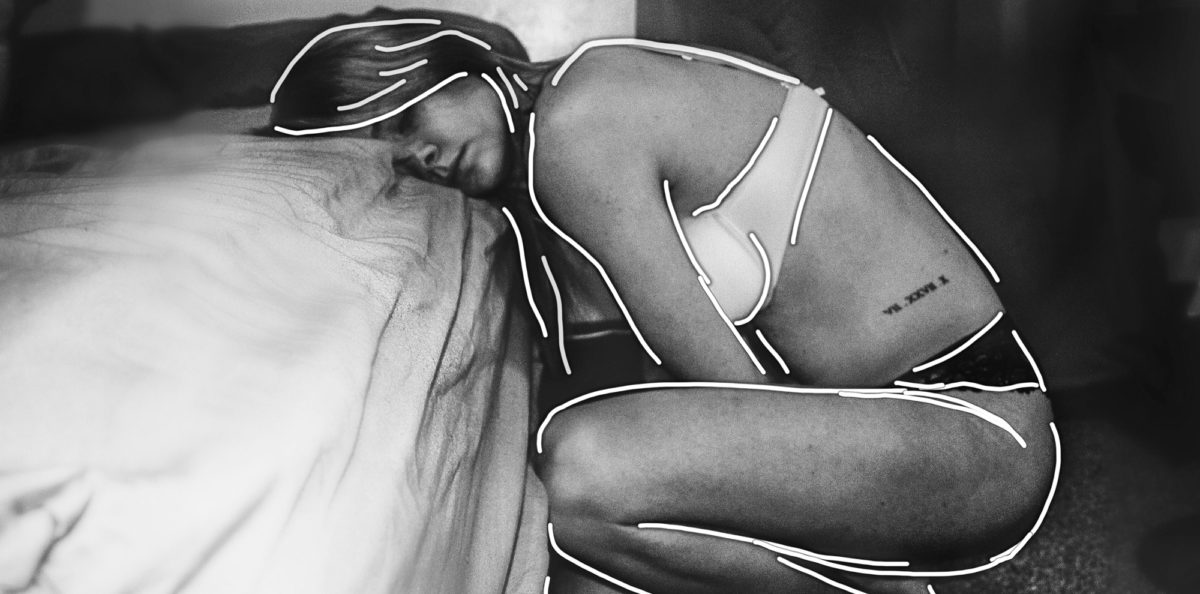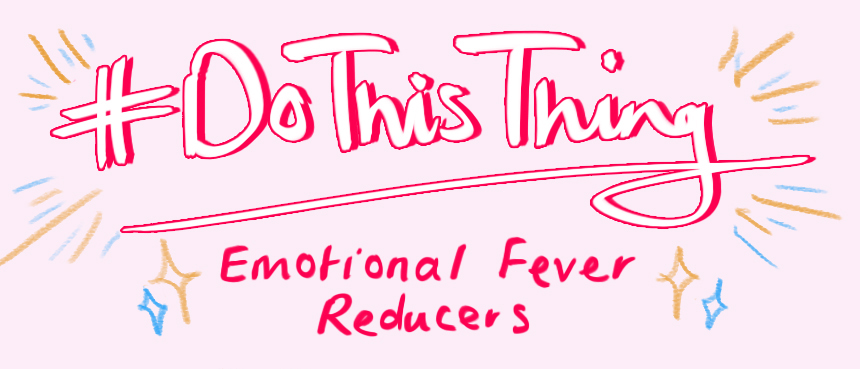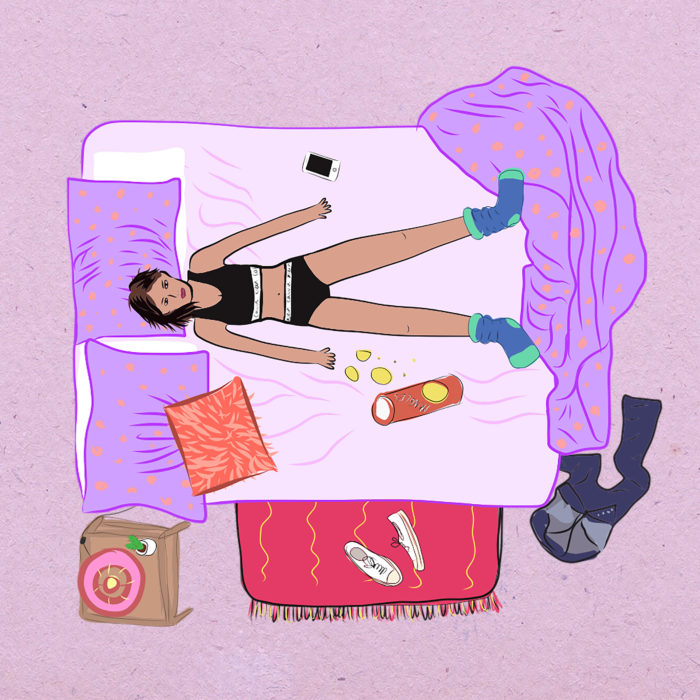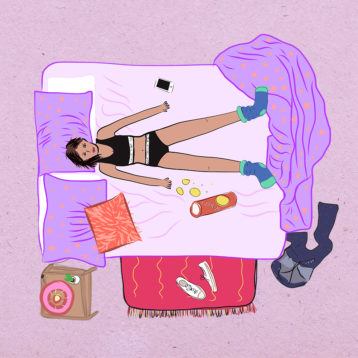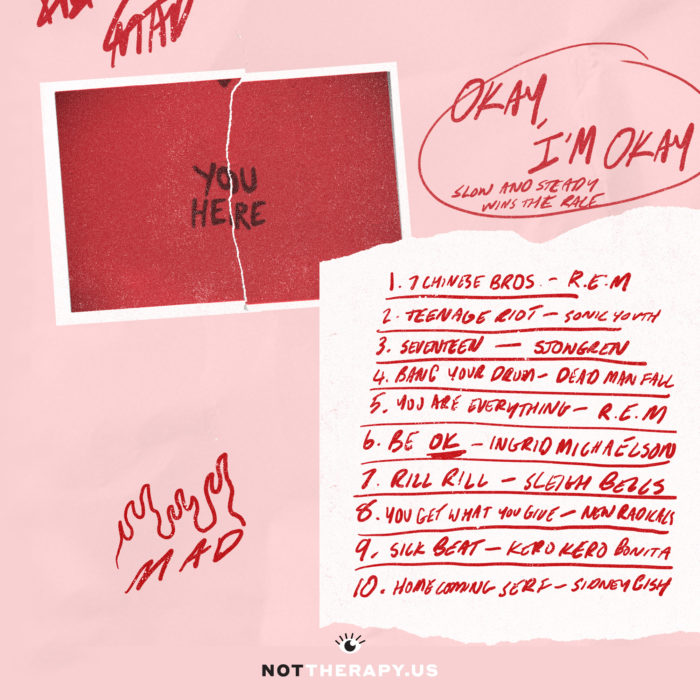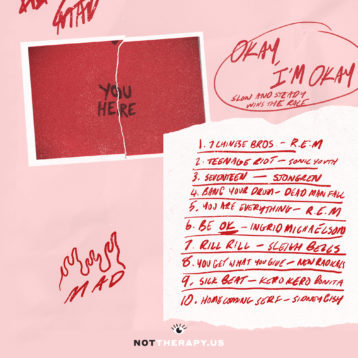Self-harm. I hate hearing about it, thinking about it and remembering those feelings…Ugh.
Self-harm sucks. While it seems to provide immediate relief from that horrific empty feeling or from that physical ache that’s brought on by tremendous psychological pain and disconnection, it also increases feelings of shame, decreases self-esteem and isolates us from all the things that make us feel better long-term.
Self-harm varies dependent on the individual—it could look like cutting, burning, head banging or excessive scratching.
Regardless, it’s often mortifying and hard to talk about. That’s why I’m glad we’re here.
#TheFacts
You’re not alone. Self-harm is common and prevalence rates, especially in girls ages 13-17, are rising.
Also known as self-injury, self-mutilation or self-abuse, self-harm occurs when someone intentionally and repeatedly harms herself/himself in a way that is impulsive and not intended to be lethal. Much of the research done on this condition tells us that the increase in self-harm is due to two things:
1. Societal expectations. E.g., comparing ourselves and our appearance to that of others on social media.
2. A lack of meaningful connection. E.g., scratching the socialization itch on our iPhones in our bedrooms by ourselves instead of sitting down for a face-to-face conversation with a friend IRL.
While these factors both contribute to the problem (big-time), there’s also the inability to regulate mood and self-soothe in a healthy way that makes self-harm feel necessary for some of us to keep on keeping on.
The consensus is that it’s typically a part of, or a response to, another set of issues.
For example, many of us self-harm to manage symptoms of anxiety, depression, or bipolar disorder. Others are said to struggle with personality disorders, which often lead to self-harm and impulsivity. Regardless of the root cause, those who self-harm are 50 times more likely to attempt suicide. So, it’s super-serious and deserves a good, hard look from us, for us.
#InOtherWords
If you’re intentionally hurting yourself for relief, there could be a bunch of reasons that it seems like a good option to you.
One thing I’ve learned is that the best way to get a baseline for the cause is to STOP IT. Sound unrealistic? I get it, but that’s another thing I’ve learned. With support and some healthier options, we can walk through just about anything when getting to the other side means feeling better for real.
And let’s face it, there’s no way for you to feel your value—a necessary part of managing your feelings and life, in general—when you’re treating yourself as if you have no value on a daily basis.
#TheFeels
Feelings can be overwhelming sometimes but feelings aren’t fatal.
For all of us, feelings ebb and flow. Sometimes we experience high-highs that seem like they won’t quit while other times, we experience lows that we worry will last forever.
From my own personal experiences and those of many girls and women I’ve seen over the years, I know that when we have the courage to ride the feelings, even the bad ones, like a surfer would a wave, without taking matters into our own hands by engaging in self-destructive behavior, the feelings will start to regulate on their own.
#LetsGetPersonal
I’ll never forget this one Sunday afternoon. I was wearing a pair of maroon sweatpants and a white t-shirt, sitting on my sofa, not knowing where to put myself. My internal motor was kicking—hard. It was so uncomfortable. It felt like anxiety, frustration, emptiness… and it scared the shit out of me.
I worried that I was literally losing my mind. It almost felt like I was heading directly for a psychotic break. In that moment, I wanted it to stop. I wanted to stop it myself but I had made a commitment to myself.
This time, I was going to do it differently. I wasn’t going to self-destruct. I wasn’t going to reach out to that emotionally abusive jerk to try to get a hit of the pseudo self-worth that I’d typically get when he told me he wanted me. This time I was going to go it alone, just to see what happened.
Here’s what happened: That feeling, the one that I hated, increased and increased and increased some more. It rose in me just like our body temperature rises in us when we have a fever. The minute I felt that I couldn’t take it anymore, it broke—just like a fever breaks—resulting in a deep sweat. In that moment, I felt hope.
From that point on, every time I had that unwanted feeling, I waited for the break.
Don’t get me wrong. It was uncomfortable, but not intolerable anymore because I knew that it was finite. The more times I waited it out, the more the quantity and the quality of the feeling decreased.
Not only did it not come as often but when it did, it didn’t rise as high or feel as intolerable as before.
Here’s how you can get there, too:
- Commit to yourself that you’re going to STOP IT, regardless of how it feels.
Much the same way that alcoholics in recovery count their days in sobriety, I want you to count your days of treating yourself like you are valuable, like you matter. Start today. This is day one.
- Tell a friend.
It’s hard to be accountable to ourselves. We’re proven to be more successful at following through when when we tell someone else our plans. Have the talk. Out the secret. Secrets bind us in shame and remember, shame is a contributor here. It’s time to garner support.
- Use alternative behaviors as you wait for the break.
There are a number of options that range from mood regulators to healthy distraction tactics. Download this week’s #DoThisThing—it’s all about reducing the emotional fever. Keep it nearby and track what works for you. Soon it will start to feel like second nature.
Photo by Sydney Sims, Illustration by Wendy Chan.


